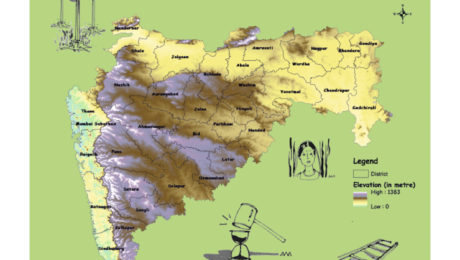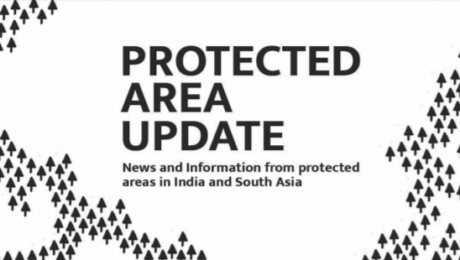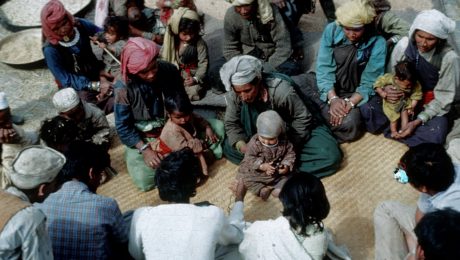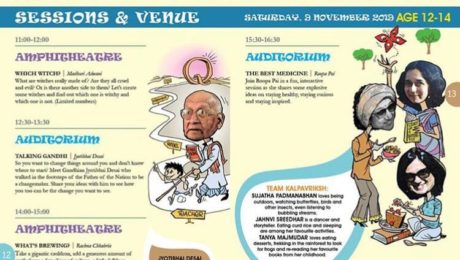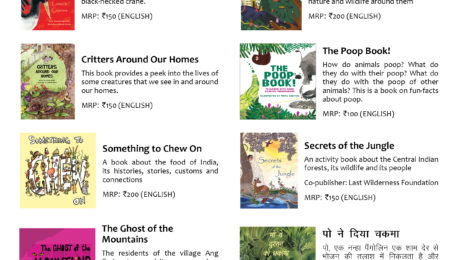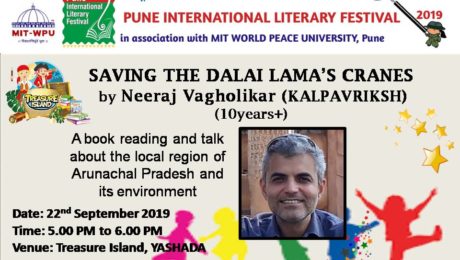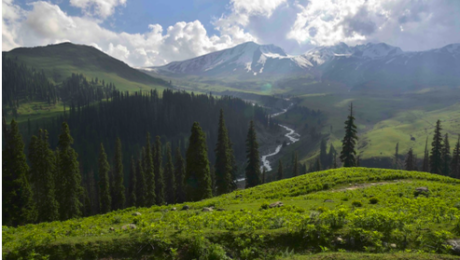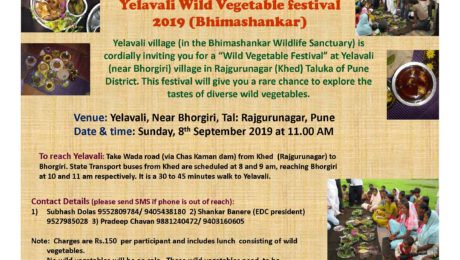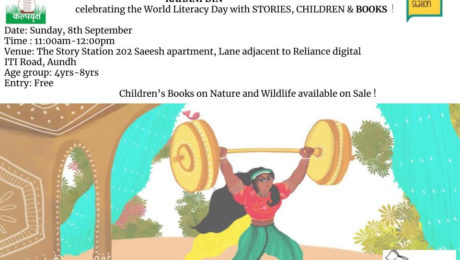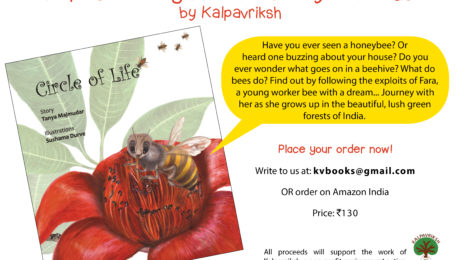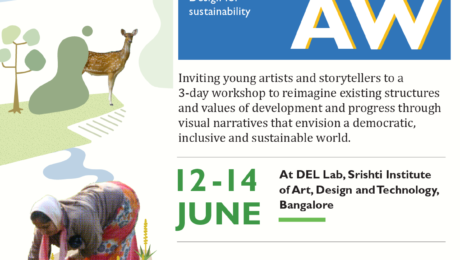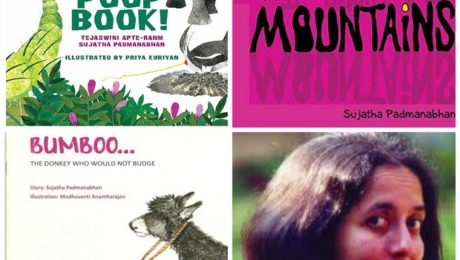New Book: The State of Wildlife and Protected Areas in Maharashtra: News and Information from the Protected Area Update 1996-2015
For nearly two and a half decades now the Protected Area Update (PAU)
has religiously presented a consolidated account of India’s wildlife and
protected area (PA) network. Published six times a year, it carries in a
tightly edited format, news and information of what is happening in, to
and around these national parks and sanctuaries that have been at the
core of India’s wildlife conservation strategy.
In the second of a series of edited books that synthesis this huge body
of information on geographical lines The State of Wildlife and Protected
Areas in Maharashtra – News and information from the Protected Area
Update 1996–2015 presents a consolidated historical account of
developments in the PA network in Maharashtra over two decades. While
the primary unit still remains the individual protected area, the time
line has changed from two months of one issue to 20 years that this
publication covers.
In following one news item after another about any particular PA we see
what happened month after month, year after year; what developments
recurred at what periodicity; what were the issues that were important
and what was done about them – it’s an important glimpse into the
contemporary history of a place (many places) marked on the map as a
protected area.
Edited by Pankaj Sekhsaria; Published by the Duleep
Matthai Nature Conservation Trust, Kalpavriksh and Rainfed Books;
xii+235pp; 100 line drawings; Price Rs. 400; ISBN: 9788192326931
Book can be currently bought for a 20% discount.
Please write to [email protected] or [email protected] to order
To know more, please click here.
- Published in Announcements
Protected Area Update, December 2019, No. 142, Vol. XXV, No. 6
- Published in Announcements
Memoirs from the past, by Vandana Singh
Back in 2011-2012 I was a columnist for an ezine called Strange Horizons, one of the flagship magazines for thoughtful, atypical science fiction and fantasy. For a few years previously I had started to worry about climate change, and to learn enough about it to teach it in my classes. I teach at a small state university near the Boston area, where I am a physics professor. For several decades I had not worked on anything to do with the environment, except through fiction (including my children’s book Younguncle in the Himalayas, directly inspired by the first big Kalpavriksh Himalayan trip in 1980). So around 2010, the urgency of the climate crisis called to me to return to the concerns that had animated my life as a teen and young adult growing up in Delhi. Back then, I had gone on the now legendary Kalpavriksh trip to Tehri-Garhwal (Image to the left: In conversation with Chipko movement activists); I had been among the twelve or so of us young people who sat under a tree in Lodi Gardens and decided we would start an environmental action group; I had even edited the first few newsletters. But since then, life had pulled me away toward other directions and other shores. I missed being in India, and I missed the daily interaction with other species. I remembered the unpolluted Delhi of my teen years, and the bird bath I had built for the feathered denizens of our South Delhi garden. As the dire warnings about environmental destruction began to sound in my ears again with the climate crisis and biodiversity loss, I felt the old longing to engage with people as I had in the KV days, to dream of and work for a world that was socially just and environmentally healthy. So in 2011 when I had the chance to write about anything at all for Strange Horizons, it isn’t surprising that environmental concerns came up right away.
As I look back at these pieces in 2019 I reflect on what I didn’t know when I wrote them in 2011 – I didn’t know, for instance, about the crucial role that indigenous people and the rural poor play in taking care of our forests and biodiversity. I didn’t know that the climate crisis would get this bad. I didn’t foresee that India would not only continue along the path to destructive development, but would do so on steroids. But I also didn’t know that there would be so many movements of resistance and positive change, points of light in the darkness as documented in the Vikalp Sangam project. I didn’t know about the concept of Radical Ecological Democracy that would animate hearts and minds in three continents. And that Kalpavriksh would thrive to see its 40th anniversary!
My relatively short early experience with Kalpavriksh was life-changing. I didn’t realize it at the time, but now that I’ve marked well over fifty revolutions around the sun, I look back and see the seeds of who I am today taking root in those days of camaraderie, shared visions, vigorous arguments, collective action, and our youthful dream of a green, just, utopic future. Somehow, despite the terrible times in which we live, I still hold on to that dream.
Following are links to those pieces:
Vandana Singh, Ph.D. Professor, Department of Physics and Earth Sciences, Framingham State University
- Published in Announcements
Protected Area Update, No. 141, Vol. XXV, No. 5
- Published in Announcements
Discounts on Kids’ Books
To celebrate National Wildlife Week 2019 (October 2nd – 8th), our kids’ books (see flyer) are available at 30% discount for the whole month of October! Please write to [email protected] to place your order!
- Published in Announcements
Story telling session and talk on ‘Saving the Dalai Lama’s Cranes’
A book reading session on ‘Saving The Dalai Lama’s Cranes’ and talk about the region of Arunachal Pradesh and its environment by Neeraj Vagholikar for kids of above 10years at Pune International Literary Festival.
Venue: YASHADA Date: 22nd Sept 2019 Time: 5pm to 6pm
- Published in Announcements
TOSAMAIDAN: A NON-VIOLENT MOVEMENT IN KASHMIR
A remarkable, non-violent movement took place in 2012-14 near Khag in Kashmir, to conserve Tosamaidan, a lovely, biodiversity-rich Himalayan landscapes of forests, meadows and mountains. The main focus of the movement was to stop an army firing range that had killed several people and livestock, and caused loss of livelihoods, for several decades. Local villagers of about 60 panchayats mobilized under the banner of
Tosamaidan Bachao Front, with help from civil society groups, and convinced the government to not extend its lease. Subsequently, movement members have been planning ecological regenration and alternative livelihood options for the local people, especially youth. In the new situation created by the central government’s proposed abrogation of Kashmir’s special status and downgrading it to a Union Territory, the future
of this unique initiative is uncertain.
An illustrated presentation by Shrishtee Bajpai and Ashish Kothari of Kalpavriksh, who visited Tosamaidan in June this year.
Saturday, 7th September, 11 am
Location: Pagdandi Basement, Shop No.6, Regent Plaza, Baner Pashan Link Road, Behind
Symantec, Baner 411045, Pune,
Entry Free. Seating on first come basis
- Published in Announcements
Wild Vegetable Festival at Yelavali
Dear all,
Women in Yelavali, Bhimashankar are organising Wild Vegetable Festival on 8th September at 11 AM. You all are cordially invited for this event!
For details please check the brochure.
Kalpavriksh
- Published in Announcements
KAHANI DIN, story telling session by Kalpavriksh
Kalpavriksh in association with Pratham Books presents ‘Kahani Din’ on 8th September celebrating the World Literacy Day with Stories, Children and Books!
Children’s Books on Nature and Wildlife on sale!
For more details please click on the brochure
- Published in Announcements
Protected Area Update, No. 140, Vol. XXV, No. 4
- Published in Announcements
Pluriverse: A Post-Development Dictionary
Pluriverse: A Post-Development Dictionary contains over 100 essays on transformative initiatives and alternatives to the currently dominant processes of globalised development, including its structural roots in modernity, capitalism, state domination, and masculinist values. It offers critical essays on mainstream solutions that ‘greenwash’ development, and presents radically different worldviews and practises from around the world that point to an ecologically wise and socially just world.
TO KNOW MORE CHECK THE BROCHURE.
- Published in Announcements
Announcing the 2nd edition of our popular children’s book, Circle of Life
Yay! We are back with 2nd edition of Circle of Life book…
To place your order, write to [email protected].
You can also order it online here: https://www.amazon.in/dp/8187945834
If you are in Pune, collect it from Pagdandi, Baner!
- Published in Announcements
ART WORKSHOP – Design & Reimagine Alternative Worlds: Design for Sustainability
Inviting young artists and storytellers to a 3-day workshop to reimagine existing structures and values of development and progress through visual narratives that envision a democratic, inclusive and sustainable world.
12th to 14th June
At DEL Lab, Shrishti Institute of Art, Design and Technology, Bangalore
Limited slots available! To register, please write to [email protected]
- Published in Announcements
Story telling session by Sujatha Padmanabhan at The Story Station
Meet author Sujatha Padmanabhan.
A special fun session on her new book – THE POOP STORY followed by a fun activity. She will also speak about her experience living in Leh Ladakh and her stories from there.
Saturday 16th Feb 2019
Age 7-13 Time – 4-5:30 pm Fees – Rs 400/-
PYJAMA STORYTIME
Animal stories with a twist
Age 4-7 Time – 6-7 pm Fees – Rs 200/-
Books on sale too.
Whatsapp 9820229003 to reserve your seats
- Published in Announcements

